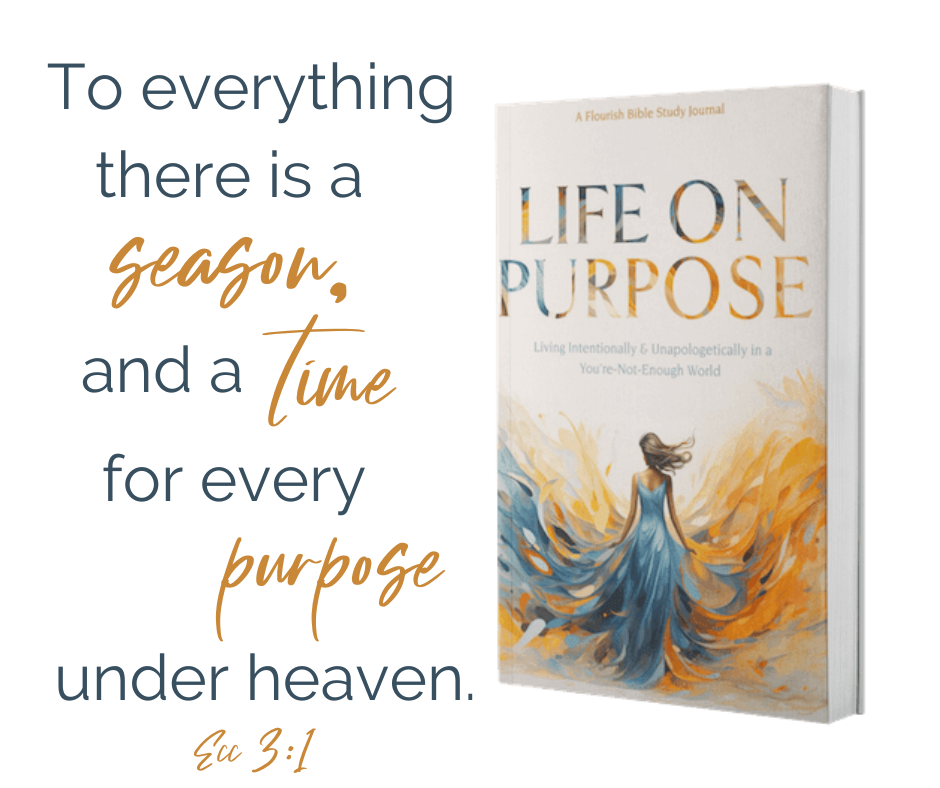Do you see family features when you look in the mirror—maybe a charismatic nose profile or an angle to the eyes that has been handed down from generations past?
Our family of origin provides not only physical features but also guidance for a successful life, whether it’s cautionary (don’t turn out like that uncle) or aspirational (follow the example of your grandma). These childhood messages are built into the fabric of the psyche. They inform the choices we make throughout our lives.
Some messages help, but others hinder. You may spend the first few decades of life trying to live up to your family’s definition of success, and then the next few trying to escape it, wondering the whole time what it is you really desire out of life.
As you question what you should pursue and what you value most, you might find yourself wondering who you really are. You may find clues about this in your family of origin, but ultimately, the One who knows you and whispers your true name is the true source of wisdom about your identity and what makes you come alive.
I thank God for the treasures my parents and siblings deposited into my sense of self, but my upbringing left scars too. Everyone’s does. No one emerges from childhood unscathed.
In my youth, my family launched out on a grand adventure to the big island of Hawaii. We moved there to get away from it all, slow down, and reconnect with nature. During the first year of a new-to-us nomadic lifestyle, home was a tent pitched in municipal campgrounds. We feasted on the beauty of the rocky coastline, played on black-and-green sand beaches, and ate tropical fruits that grew wild in abundance.
This story is off to a good start, right? What magic to wander the beaches and explore the island supported by the comfort of family love. But just like paradise in the garden of Eden, a snake was lurking.
We stayed on the island and bought a house. I started elementary school, where I discovered that I didn’t fit in as a tall, blonde, white girl who stood at least a head-height above my peers. The locals had a name for someone like me, and it wasn’t a term of endearment. I was a haole.
Children and adults alike made fun of how easily my skin burnt. They took delight in mocking the blisters that bubbled up on my nose and cheeks after long days of unprotected outdoor frolic. My long limbs looked like chicken legs. The light sun streaks in my hair were ugly. My green eyes glowed eerily like a cat’s. Everything about me was wrong. My body revealed my inferiority.
This was my first conscious experience of rejection. I was evaluated by those in power and found to be lacking.
Why are we susceptible to such assessments—so ready to believe that we are defective? It’s next to impossible to connect with an inner confidence that esteems and loves yourself just as you are. Seeking acceptance from others leads nowhere. Change contexts and you change your rating. Had I grown up in northern Europe, I’d have fit right in, which would have been easier, but I might have missed learning at a young age about the futility of looking to others to define me.
Your experience may have been different than mine, but we’ve all found out at one time or another that we don’t measure up. What’s your history with rejection? When have you been evaluated by those in power and told that you don’t meet expectations?
We’re kindred spirits with many people in the Bible who experienced rejection. The Israelites shunned their prophets by and large. Jeremiah couldn’t get through to the people and struggled with depression over the hopelessness of his job. Noah’s neighbors thought he’d gone mad. Joseph’s brothers got rid of their troublesome younger sibling. Esther was advised to keep mum about her nationality. Even Jesus was despised and rejected (Isaiah 53:3).
Throughout the Scriptures, we see the chosen people of God shunned as they strive to walk out their calling. They are saying yes, but the world is saying no. We’re wired as social beings, eager for affirmation, looking for value in the praise of others. It requires a strength of spirit to endure seasons when we find precious little praise for the choices we’re making. Consider the musician in a family of doctors, the stay-at-home mom in a community of career women, or the writer who hasn’t yet been published.
These are the times we keep our eyes on God, staying close to the heartbeat of our Creator, tethered to the belief that we are walking in obedience, not to please others but to please Jesus.
These are the times we hold fast to the promise found in I Peter 2:4–5a, “As you come to him, the living Stone—rejected by humans but chosen by God and precious to him—you also, like living stones, are being built into a spiritual house.”
You were created with purpose on purpose for a purpose. Nothing about you is a mistake. Many of the names other people call you or the names you call yourself are inaccurate according to God’s eternal perspective. You are more than the color of your hair, more than your nationality, more than your gender, education, or material wealth—so much more than the ledger entries made by others evaluating you.
What liberation to experience yourself as chosen by God and precious to God. Nothing you say or do makes you any more or any less valuable. You’re being built into a spiritual house. You’re part of a kingdom community grander than anything we see or experience in the physical realm.
How is this spiritual house being built? It’s rarely visible. This spiritual house is built in quiet moments of joy when you exclaim at the beauty of nature and in private moments of sorrow when you weep at the passing of a loved one. It is built at the midnight hour as a mother feeds her baby, as a daughter cares for her ailing parent, as a spouse prepares another meal, as a child offers a fistful of tiny flowers to his mom.
This spiritual house is built in both private moments of humble service and public moments of courageous obedience when you share a song, make a speech, or author a book—whatever it looks like for you to accept God’s invitation during that season in your life.
It’s easy to find praiseworthy purpose in the public moments, for these are the ones likely to elicit accolades from others. The private moments? Not so much. The tenth diaper changed. The twentieth mess mended. The gazillionth dispute resolved. Day after day. You wonder, Is this my life?
In Ecclesiastes, we see the hopelessness of trying to find affirmation from our accomplishments, the futility of seeking meaning from either duty or hedonism. An unshakable sense of self-worth comes not from the praise of others but from the One who designed you and knows you intimately.
When the hope of eternal perspective is absent, life becomes a fog of futile effort to measure up. Those who seek meaning from overwork or overindulgence eventually find themselves lost in their own life. Both the author of Ecclesiastes and the apostle Peter call us to fully inhabit our Spirit-breathed, born-again life because the alternative is a mere shadow of what we’re promised.
I don’t know the experiences in your life that have diminished your brightness, but it’s inevitable you’ve faced plenty. False names that misidentify your true self appear on your name tag, but I pray you reject them as lies. You are precious to God, created for purpose. You’re an integral piece of the spiritual house for this generation. We need you to show up with the gifts that you alone bear. May you find clarity in this season and contented excitement as you glimpse your crucial role in an eternal kingdom. This is not fantasy—this is your one true life, lived in the light of eternity.


